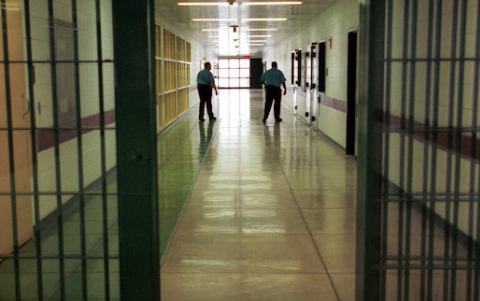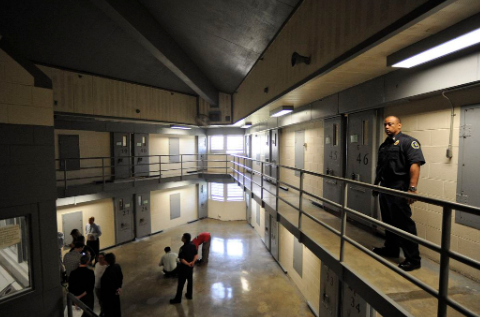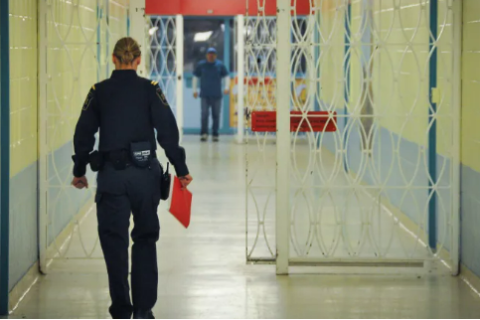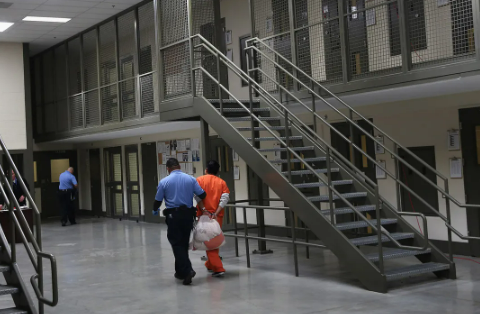A Correctional officer enforces the rules and regulations in a jail or prison. A Correctional officer needs special skills such as physical strength and leadership. For those who are interested in a career as a correctional officer, ensure you include these skills on your resume and then discuss them during interviews. Well, in this article, we are going to explain about Correctional officer skills and abilities for a resume, and the skills needed to be a Correctional officer.
Correctional Officer Skills for Resume
You are able to look at the skills you have gained from past work experiences, and then list the ones which are most important for a correctional officer’s job. After that, you are able to match your strongest skills with the keywords and required skills in the description of the job you are applying for. Next, discuss them in your cover letter, and include them in a skills section on your resume.
Start with these skills and abilities for Correctional officer resumes:
Correctional Officer Resume Skills (Hard Skills)
- Conflict Resolution
- Monitoring Systems
- Inspection
- Patrolling
- ID Verification
- Training
- Rules Enforcement
- Maintaining Order
- Discipline
- Solving Disputes
- Safety Policy Knowledge
- Self Defense
Correctional Officer Skills (Soft Skills)
- Interpersonal Skills
- Critical Thinking
- Teamwork Skills
- Leadership Skills
- Written and Verbal Communication
- Time Management
- Active Listening
- Attention to Detail
- Problem Solving
- Organizational Skills
Here is how to choose the best correctional officer skills:
- Please make a long list of all the correctional officer skills you have.
- Read the job posting. Then, make a second list of the skills it mentions.
- You are able to make a third list of the skills which show up in both lists. Those are the optimal resume keywords.
- From list #3, you are able to select a mix of soft skills and hard skills.
- With achievements in your bullet points, you have to prove that you own those skills.
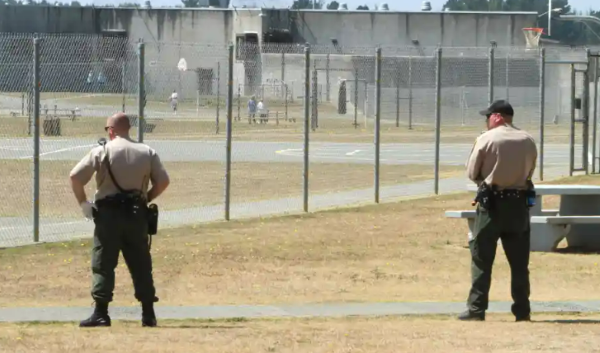
Examples of Correctional Officer Skills and Abilities
Here are some examples of correctional officer skills and abilities:
Resilience
A good correctional officer must learn from their mistakes and then use those lessons to get better at what they do. Maintaining orderliness in jail or prison comes with its unique challenges. Sometimes, Correctional officers make mistakes. If a Correctional officer or an inmate gets injured during a fight within the facility, it is the correctional officer’s responsibility to learn from the experience and take steps to prevent that in the future.
Communication skills
Correctional officers have to be able to communicate effectively, not only with colleagues but also with the people they oversee. When speaking, Correctional officers have to use a confident tone to get the inmates’ attention and respect. They have to give clear commands and instructions to avoid misbehavior. Also, Correctional officers have to maintain calm but authoritative body language. Active listening is another communication skill that the Correctional officers need when interacting with inmates. They have to be attentive to inmates’ concerns and make them feel comfortable sharing information.
Open-mindedness
Correctional officers have to be open to new perspectives and ways of doing things. Also, they must have a flexible mentality which allows them to adapt to changes and new challenges. This quality will allow them to react to new situations. When correctional officers are open-minded, then they also avoid letting bias and stereotypes affect their work.
Stress management skills
Being a correctional officer may be stressful, and high levels of stress may affect an individual’s functioning. Correctional officers must have strong stress management skills so they are able to avoid becoming overwhelmed and, instead, react positively during intense conditions.
Self-discipline
The Correctional officers must have the self-discipline to focus on their work and to react to situations logically. If conflict arises in a facility, they have to solve it professionally. Also, Correctional officers with self-discipline continually learn and develop new skills to improve at work.
Teamwork
Correctional officers have to work together and support each other in their work. Teamwork can get the job done more efficiently and makes work more enjoyable. Knowing your colleague is supporting you and ready to assist if you need it can encourage not only one officer but the entire team. Teamwork and cohesiveness will allow the Correctional officers to approach mental health problems with the support of their team. The job will be stressful at times, but that stress will be easier to manage with a supportive team’s help.
Problem-solving skills
Good problem-solving will allow the Correctional officers to evaluate and assess situations as well develop effective strategies for resolving issues. Correctional officers have to consider all factors and parties involved in a potential issue and discover a solution which benefits everyone.
Observational skills
Correctional officers have to be aware of everything happening at their workplace. Also, the Correctional officers have to watch for security breaches, strange behaviors, contraband, and illegal activities. Good observational skills will help the officers identify and address concerns before they become major issues. By intervening early, they are able to keep themselves and the inmate population safe.
Analytical skills
Correctional officers must have the analytical skills to identify trends and unusual activities. These skills will help them form meaningful conclusions from the information and take proper action. Also, analytical skills help correctional officers solve issues and prevent them from recurring.
Physical fitness
Being a correctional officer is physically demanding and involves restraining inmates. Lots of correctional officers select to learn a type of combat such as martial arts. Also, Correctional officers must have the stamina to be standing and walking much of the day.
Impartiality
Correctional officers have to be neutral in all their interactions with inmates. They have to show no signs of favoritism and must treat all inmates similarly. They have to report all rule violations to superiors, no matter who broke that rule, and also enforce any disciplinary actions. If external law enforcement requires an investigation, correctional officers have to cooperate, regardless of their feelings about an inmate. For this reason, hiring managers at correctional facilities frequently use hypothetical scenarios to test an officer’s judgment skills.

A bookworm and researcher especially related to law and citizenship education. I spend time every day in front of the internet and the campus library.

